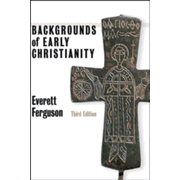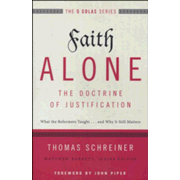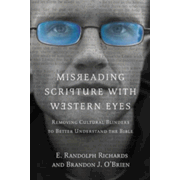WITHIN THE Twenty-Second Sunday after Pentecost we
of the Church shall hear a message from Saint Mark concerning the final healing done by our Lord before his
crucifixion in Jerusalem. However, for those celebrating Reformation Sunday, please click here to view...
Others reading from the Gospel According to Saint Mark, shall hear…
And
they came to Jericho; and as he was leaving Jericho with his disciples and a
great multitude, Bartimaeus, a blind beggar, the son of Timaeus, was sitting by
the roadside. And when he heard that it was Jesus of Nazareth, he began to cry
out and say, “Jesus, Son of David, have mercy on me!”
And many rebuked him, telling him to be
silent; but he cried out all the more, “Son of David, have mercy on me!”
And Jesus stopped and said, “Call him.”
And they called the blind man, saying to him,
“Take heart; rise, he is calling you.” And throwing off his mantle he sprang up
and came to Jesus. And Jesus said to him, “What do you want me to do for you?”
And the blind man said to him, “Master, let me receive my sight.”
And Jesus said to him, “Go your way; your
faith has made you well.”
And immediately he received his sight and
followed him on the way.
(Mark 10:46-52)
 |
Backgrounds of Early Christianity, Third Edition By Everett Ferguson |
In
A Name?
Herein we find that two sons meet on the road. First
was Bartimaeus, the son of Timaeus, who was healed by Jesus. Bartimaeus was a
blind man who sat begging for donations on the road near Jericho. The city of Jericho as a
fairly well-to-do urban area, was a suitable location for his begging. As
he sat there, however, Jesus arrived and was acclaimed by Bartimaeus as the Son of David.
As to the name of the blind man, there has been some scholarly conversation. His name was unusual in several ways. First that a name was mentioned at
all, for it was not the usual pattern for this gospel writer to give the name of
any person who had been healed. Second, his name was explicitly translated here
as "Son of Timaeus.". Some biblical scholars see the name used as a reference
back to a particular historical disciple who may have been personally known by the
writer and the community of Mark. Other scholars
however, view it with yet another significance. We know that the name is of a rather
strange Semitic-Greek hybrid. The name, if illustrative, may point figuratively
to Plato's “Timaeus”,
a man who delivered the philosopher's important cosmological and theological
treatise… one which involved sight as being the foundation of knowledge.
Here in this
instance, however, I tend to lean in my usual habit toward recognizing all of these possibilities. I consider that there was indeed a blind man named Bartimaeus, and he
possessed a name which indicated that he would stand out boldly.
He represents collectively... those in the infant Church who he would soon see clearly.
 |
Faith Alone, The Doctrine of Justification: What the Reformers Taught...and Why It Still Matters By Thomas Schreiner |
How is this
possible.., that a man truly-named as Bartimaeus was found as present at that moment in
time, and sat at that location… and was suited so well for the edification of the Church?
Indeed, in answer, consider this. Notice that we often read in scripture where other persons of faith had been
urged or directed by the deliberate circumstances of life, as sheep toward a chute or gate… in
order that they may experience a divine encounter. In these cases we see that
even if their steps were previously sinful, in a crossing of paths with the
divine nature of God the encounter resulted in a great benefit not only for them, but for those like ourselves who observe the occasion. Thus the grace
of God was and is yet revealed.
We note
typically here that the gospel portrayed Jesus’ followers as rather
callous, as narrowly focused on great aspirations. They wished to quiet Bartimaeus’
plea, seeing him as a waste of time and effort. However, the blind man called loudly
upon Jesus as the “Son of David”. By calling Jesus with such a title, he showed
that he recognized our Lord as the Messiah. While we might note that this was something
that others did as well, Jesus knew that many of the others misinterpreted just
what the title meant. By doing so they selfishly would cast aside his
predictions of his own crucifixion.
 |
The Life Worth Living: Faith in Action By Byron L. Sherwin |
Shedding
Security?
We keenly note
here that Bartimaeus shed his cloak when he was called to rise and meet with Jesus. To
me that seems a highly symbolic act. The cloak was not just his protection
against the elements of nature, but was the catch device laid on the ground for those monetary donations
which served to keep him alive. It was thus very meaningful when the
blind man willingly, almost carelessly… cast his source of livelihood aside.
Without hesitation, in the belief that he could be cured by Jesus… he got up and went forward! At that point our Lord asked the same
question that had been spoken to others… ““What
do you want me to do for you?” Bartimaeus boldly
asked him that his blindness would be cured. Many of us may ponder whether the blindness
could have been both physical and spiritual. However, we also read here that Bartimaeus
referred to Jesus as "Master". In other words... his own, personal teacher. In faith therefore, he
expressed familiarity with our Lord! You see, though blind... he could see rather clearly.
 |
Misreading Scripture with Western Eyes: Removing Cultural Blinders to Better Understand the Bible By E. Randolph Richards & Brandon J. O'Brien |
This last
thought I take as a sign that the community of Mark who heard this
reading was being guided to also throw caution aside. They were asked to get up, cast off the security cloak of this world... and meet Jesus just
like the blind man. Notice that Bartimaeus was a name that historically had both Jewish and
Greek sources. Realizing this, we can hear from an infant Church wherein both Jews and
Greeks together were gathered. In Bartimaeus they both could identify. They were thus
spiritually guided to also hail our Lord as the Messiah. Jesus was then revealed to all as
the Anointed Deliverer whom God had sent into the world. This episode soon became for them a
message promoting unification across lines of genealogical heritage!
We most
importantly note that Jesus then told Bartimaeus that his faith had made him well.
So too, the co-identification in Mark’s community was carried forward, in that with their
communal blindness cast aside they could quite clearly see the way forward through
burdensome persecutions.
Note this guidance! Toward
the end of this lesson we read that though our own spiritual blindness often hinders us
as sinful human beings, we see that Bartimaeus indeed followed Jesus. He followed as our
Lord went onward to Jerusalem and eventually died upon the cross. Given this, we might ask ourselves, “Was this particular episode the gospel writer’s
method of reminding his congregation… and we who live in today’s world… that
after receiving this vision, our path is to also follow Jesus to the cross as well. I dare
venture to you that this is so.
 |
We Will Not Be Silenced: Responding with Courage to Our Culture's Assault on Christianity By Erwin W. Lutzer |
In conclusion
then, I say to you that we need as the Christian church to follow
in faith. Having sat idle and blind for too long along roadsides of the modern world, we are asked
by Jesus Christ to stand without cloaking ourselves in worldly substance. We are to boldly seek for our Lord to heal our sight. May we be
blessed to also view that which is further described in this gospel. If seeing
truly, we can read further concerning the pompous parade of those who were misguided in this
world, those trying to profit from Messianic expectations.
Indeed, we may view the selfish, unrepentant
ancient society’s rejection of the Good News. We comprehend the prediction of our Lord that soon one
stone of our whited sepulcher shall not be left upon another. Given a true vision of the Son of
David we shall truly see the Messiah crucified upon a cross for our sake. Finally... this witness of
Mark ended appropriately three days afterward with startled women standing
at the door of an empty tomb. The final scene therefore
yet described spiritual blindness, chaos and wonder.
The moment described at the close of the gospel told thusly, therefore makes me wonder if our brother Bartimaeus, by the gift of healing was one who yet stood nearby. If so, I believe that he could truly see though the rest could not. I think he could have stoically been standing nearby in faith. And dear readers, I further suggest to you that somehow through the power of the Holy Spirit, blessed Bartimaeus could thus now represent... each one of us.


No comments:
Post a Comment